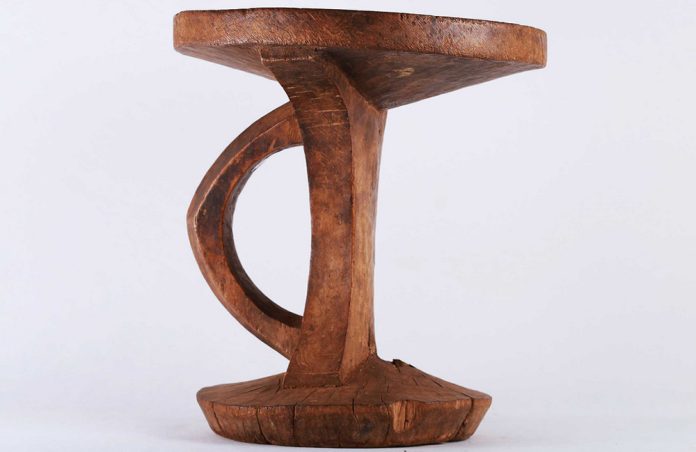Since its inception, the chair has morphed into shapes, fascinating shapes. But as you sit on your comfy couch in your sitting room today after a long day at work, in Karamoja, people swiftly sit on wooden stools after, well, a long day in the field. It’s the way of life. And the Karamajong has an attachment to these wooden stools. To them the T-shaped masterpiece curved off tamarind trees, they are all they have.
No, they are not complaining, why would they? They are not. They are contented with them, because these wooden stools, old-fashioned as they are, perform diverse duties. Traditionally called Ameto, these wooden stools are viewed as historical tools in Karamoja. They are symbols of history. That’s why, like the rest of the world races to buy those fancy couches with cushions, the Karamojong don’t join the queue. With these wooden stools which can last as long as 15 years if kept well, they are covered. In them, they find comfort.
Talking to people in Karamoja, they will tell you heartfelt stories about these wooden stools. Each one of them has a story, a good story about the stools. Me? I use it as a pillow. For me, I use it when I am grazing my cattle. For us, we use these stools at parties. And many more stories. They could be wooden and hard in the eyes of other people, but not to the Karamojong. For them, they look at them as pillows to sleep on.
As the rest of the world rests their heads on cotton-made pillows to sleep, people in Karamoja rest their heads on these wooden stools. And all is fine with them. No one will complain about a backache or an ache in the neck. No one will complain of being an insomniac either. To them, it is a normal routine. The Karamajong are renowned cattle keepers.
As they herd their cattle for pasture, they use these wooden stools for resting on them. It’s a good sight to capture; as they sit on these stools and watch over their cattle, their hands across their stubble, wrapped in their traditional attire. It’s spectacular, the sight. Also, as they go milking; they put the stools on the ground, sit on them as they pull the cows’ udders for milk.
Even as they hold parties and different ceremonies around the region, these stools help them. They have no plastic chairs, like the rest of the world. These stools aid them to accommodate guests. To them, these stools are part of them. Yes, they could be wooden, but nothing beats history. Having it is a symbol of maturity and a ticket to mingling with elders as they discuss fundamental issues of the tribe. As they sit on them, unbeknownst to the rest of the world, the Karamajong are seated on history.










